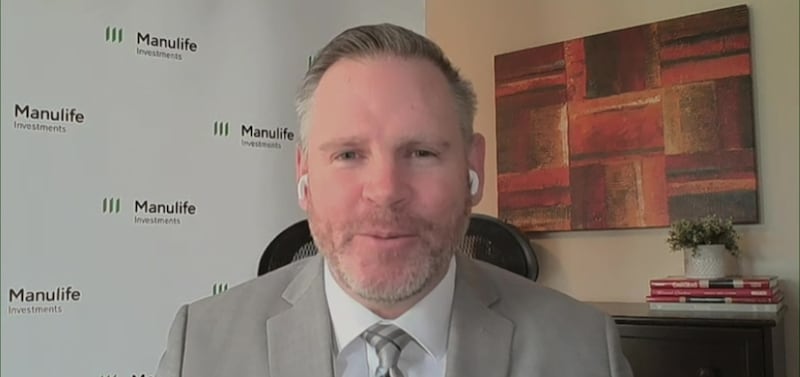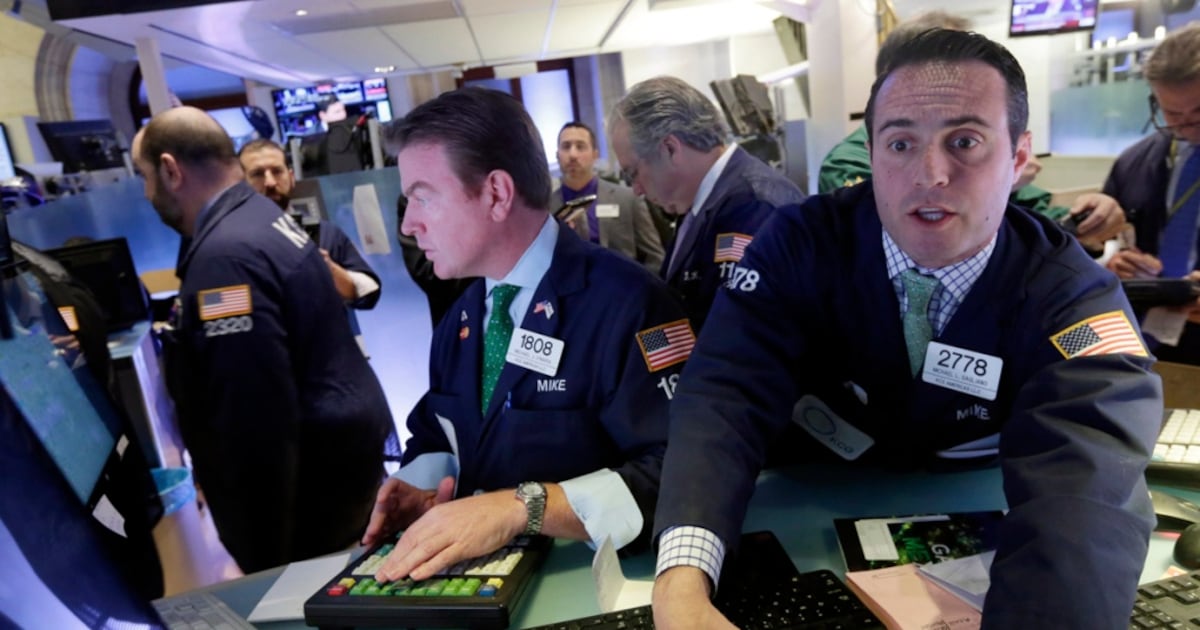Kevin Headland, co-chief investment strategist at Manulife Investments, joins BNN Bloomberg to provide a market roundup while expecting two more rate cuts in Canada.
Economic growth continues to slow globally, but a recession is likely to be avoided as resilient consumer demand and government spending support economies. Investors remain focused on the pace of interest-rate cuts from the U.S. Federal Reserve and Bank of Canada, even as equity markets hover near record highs.
BNN Bloomberg spoke with Kevin Headland, co-chief investment strategist at Manulife Investments, who sees opportunity in equities and fixed income, with active management and diversification becoming essential for navigating a slower-growth environment.
Key TakeawaysGlobal slowdown persists, but recession risks are easing.Canada likely to see two more rate cuts, data dependent.Equity markets driven by select sectors, valuations elevated.AI is a long-term growth driver, but risks of overspending exist.Fixed income attractive, especially corporate credit and mid-duration bonds. Kevin Headland, co-chief investment strategist at Manulife Investments Kevin Headland, co-chief investment strategist at Manulife Investments
Kevin Headland, co-chief investment strategist at Manulife Investments Kevin Headland, co-chief investment strategist at Manulife Investments
Read the full transcript below:
ANDREW: Stock markets are doing fine this year, even with fears of a global economic slowdown. Our guest thinks a worldwide recession is likely to be avoided. We’re joined by Kevin Headland, co-chief investment strategist at Manulife Investments. Thanks very much for coming on the show, Kevin. Really appreciate it. Even just a few months ago, there were fears that U.S. tariffs would throw the global trading system into disarray. Those fears seem to have eased now.
KEVIN: Yeah, it seems the tariffs have eased some of the pressure. We also have some deals in place, so that pressure has come off a bit. On top of that, fiscal spending in places like Europe has helped support certain regions, which overall should help global economic growth.
ANDREW: So you think a global downturn is unlikely at this stage?
KEVIN: It seems so. The “R word,” as we like to say, puts fear in people’s minds. It looks like a recession will be avoided. However, with slow growth, like we’re seeing with the Canadian numbers today, we shouldn’t be celebrating. Below-trend economic growth is not what we want. We’d prefer trend or above-trend growth. So even if we avoid a recession, we shouldn’t be celebrating the current economic data just yet.
ANDREW: Turning to Canada, you think we’ll get two more interest rate cuts?
KEVIN: It seems like we should see one this year and perhaps one next year. That second cut, of course, depends on the data. Do we continue to see weaker economic and labour market data? Does inflation cool enough to give the Bank of Canada some runway to support growth? I think one cut this year is priced in, but that second one is still up for debate.
ANDREW: You stress that you favour investing in companies, not countries. But are you seeing opportunities in the Canadian stock market?
KEVIN: There are still opportunities in the Canadian market. We’re reaching record highs, possibly breaching the 30,000 level and holding it. Returns so far this year have been driven by a couple of sectors, a few names, but there is still some depth. That said, investors and money managers are working harder because valuations are generally above average. Still, there are good-quality businesses at reasonable, though not cheap, prices.
ANDREW: South of the border, the scale of planned investment in AI and data centres is massive. We’re talking hundreds of billions of dollars. Do you think the euphoria could be overdone?
KEVIN: It will take time before we see the true value created from these builds. Some projects may be overspending. We won’t know for years how much growth this investment generates. Job creation is important, but patience is required. Still, AI is not a short-term fad. It’s a long-term, important shift. We don’t want to be left behind in Canada. We need to participate in this new technology paradigm.
ANDREW: I have to ask you this. There was a story in the Harvard Business Review about a new term called “workslop” — people lazily prompting AI and churning out material and presentations. Have you seen anything like that?
KEVIN: It’s interesting. We’ve always worried about AI replacing jobs, and yes, students may be relying on it too much. The chat systems aren’t perfect — there are delays and inaccuracies. We worried the same thing when the internet came along, that people would waste time instead of working. But it actually created productivity once people adapted. I think that’s the key here — AI could end up being very helpful for productivity down the road.
ANDREW: Yeah, although I think brevity will matter. Anything over a page might get suspect now. Let’s talk bonds. We’ll put up the 10-year Canadian bond yield. With steadily falling rates, are you attracted to bonds at these prices?
KEVIN: We are attracted to bonds, particularly in corporate credit, both in Canada and globally. European fixed income looks interesting too. There are yields to be had if you look in the right places, and prices are generally below average. We don’t want to blindly buy long-term government bonds, but instead focus on the belly of the curve — four to seven years. Investment-grade bonds look solid, and corporations remain fundamentally sound. We’re not worried about a debt crisis. Yields are appealing, and fixed income is doing what it should during volatility. Earlier this year, when equities sold off, bonds helped protect the downside. Balanced investing is back — it never really left — but investors need patience. Fixed income doesn’t climb like equities, but it plays its role.
ANDREW: Kevin, thanks very much.
KEVIN: Thank you.
ANDREW: Kevin Headland, co-chief investment strategist at Manulife Investments.
—
This BNN Bloomberg summary and transcript of the Sept. 26, 2025 interview with Kevin Headland are published with the assistance of AI. Original research, interview questions and added context was created by BNN Bloomberg journalists. An editor also reviewed this material before it was published to ensure its accuracy and adherence with BNN Bloomberg editorial policies and standards.

